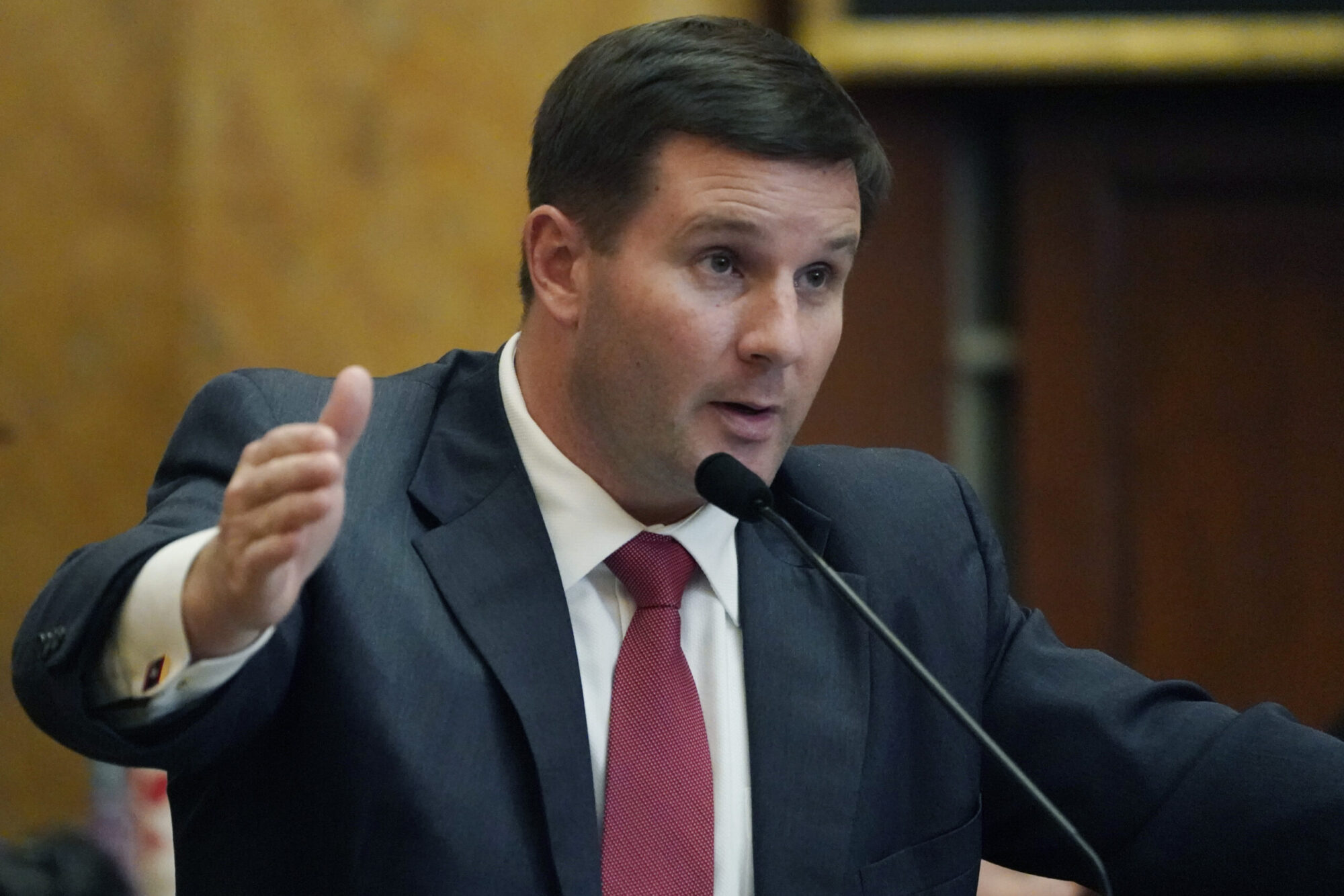A House committee passed a major tax cut plan on Tuesday evening that would eventually abolish the state income tax, reduce taxes on groceries, increase local sales taxes and provide more money for road work.
The plan would over time cut about $1.1 billion from the state’s current revenue. Proponents say economic growth will cover this, and not result in major cuts to government services or spending.
“This is one of the most transformational pieces of legislation that this state has ever seen,” House Ways and Means Chairman Trey Lamar said in the committee meeting.
The legislation passed the GOP-majority House committee with no audible opposition, though Rep. Robert Johnson III, the House Democratic leader, raised concerns that the state’s budget may not collect enough revenues in the future to offset the tax cut.
The legislation would reduce the income tax rate from 4% to 3% next year. Then, it would reduce the rate by .3% each additional year until the tax is eliminated in 10 years.
The plan also trims the 7% sales tax on groceries to 2.5% over time. Under current law, Mississippi’s 7% sales tax is split between the state and municipalities where the tax is collected. To shore up the loss, the legislation would end the state’s 18.5% sales tax diversion to municipalities, meaning the full sales tax collected will go to the state budget.
To make municipalities whole, the bill adds a general 1.5% local sales tax for both municipalities and counties that the local governments can vote to opt out of. The tax collected by the counties would go toward local road maintenance.
Oxford Mayor Robyn Tannehill, an independent, attended Tuesday’s Ways and Means meeting and told Mississippi Today she supports the local 1.5% local sales tax because it means additional revenue for municipalities in the state.
“I’m supportive of any bill that increases revenues for Oxford, Mississippi,” Tannehill said.
The legislation also adds a new 5% tax on gasoline sales, which would go toward the Mississippi Department of Transportation’s budget for road and bridge infrastructure. The tax is expected to generate $400 million a year. Currently, Mississippi has an 18.4 cents-a-gallon flat tax on gasoline — a flat rate no matter the cost of a gallon. Transportation leaders have for years said they need an indexed tax that would rise with the cost of gasoline in order to generate enough money to keep up road maintenance.
Using the current average gasoline price in Mississippi of $2.62 a gallon, the proposed new tax would cost consumers 13 more cents a gallon.
Lamar, a Republican from Senatobia, said he intends to bring the bill up for a full House vote this week, and it’s expected to pass the 122 member chamber. But the legislation is several steps away from becoming law.
Once the legislation passes the House, it would likely head to the Senate Finance Committee, which is led by Republican Sen. Josh Harkins of Flowood, for consideration. Harkins has not yet responded to the House’s legislation, but he previously told Mississippi Today the Senate will unveil its own tax cut package in the coming weeks.
If the House and Senate agree on a tax cut measure, it would head to Republican Gov. Tate Reeves’ desk for consideration. Reeves has been a vocal champion of eliminating the income tax, but it’s unclear if he would support all of the House’s latest tax cut measure.
Lamar on Tuesday night told reporters that he had spoken with Reeves’ office, and he believes the governor will offer his support to the legislation. The governor’s office did not respond to questions about his stance on Lamar’s legislation.
Reeves in past years has opposed what he called “tax swaps,” tax cut proposals that sought to decrease the overall tax burden, yet raised another type of tax such as the latest House proposal. He’s also opposed past efforts to raise the gasoline tax.
“If a bill comes to my desk that doesn’t raise any other taxes that cuts the grocery tax and cuts the income tax, I’m fine with that,” Reeves said last week at a press conference.
Reeves, in 2021 notably opposed an effort led by Lamar and former House Speaker Philip Gunn that sought to eliminate the income tax and cut the sales tax on groceries in half while increasing the sales tax on other items by 2.5 cents on the dollar.

